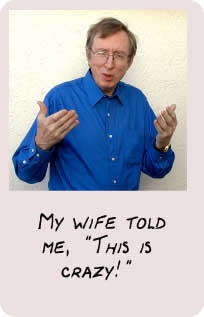|
|
Katalina Groh, Larry Prusak: Some of the world's leading thinkers |
| Storytelling to ignite change: Steve Denning |
 |
We
are all storytellers
And who can be a springboard
storyteller? Who can get this kind of effect from telling a story? Does
it require special talents or background?
|
| telling stories, and now whatís worse,
teaching others how to tell stories. This is really quite extraordinary.
If you can tell stories, anybody can!Ē
And indeed thatís the point. We are all storytellers. We spend most of our lives, wittingly or unwittingly, telling stories. In fact, itís not something we have to learn, itís something we do, day in and day out, every day. Itís something that we are able to do at the age of two. Jerome Bruner has documented how little children at this age, as soon as they can start to talk, show that they understand the stories that their families tell them, and they start to tell their own stories, and in particular start to tell stories to themselves as part of their first efforts to make sense of their lives. It happens so easily and so spontaneously and so pervasively that some scientists believe that storytelling is hard-wired into our brains. It is only several years later, usually around the age of eight, that we start having abstract language beaten into our brains by schoolteachers and the education system. Abstract language doesnít occur spontaneously in children. It is something that they have to be systematically taught. Given the struggle that most of us have to learn abstract concepts, it does seem as though it is hard-wired in our brains. It has to be learnt. And most of us do learn it, almost like learning a foreign language. Some of us get quite good at this abstract language, this foreign language, but whenever we get a chance, when we are relaxing with our friends, or outside of school or work, we lapse back into our native language of narrative, at the first opportunity. We are more at home in our native language of storytelling, we can relax in it. We find ourselves refreshed when we exchange stories. It is energizing, unlike the foreign abstract language which most of us find tiring. Itís the language of that we feel comfortable in. |
| Books and videos on storytelling *** In Good Company : How Social Capital Makes Organizations Work by Don Cohen, Laurence Prusak (February 2001) Harvard Business School Press *** The Social Life of Information, by John Seely Brown, Paul Duguid (February 2000) Harvard Business School Press *** The Springboard : How Storytelling Ignites Action in Knowledge-Era Organizations by Stephen Denning (October 2000) Butterworth-Heinemann *** The Art of Possibility, a video with Ben and Ros Zander : Groh Publications (February 2001) |
| The views expressed on this website are those of Stephen Denning, and not necessarily those of any person or organization |
| Site optimized in 800x600: webmaster CR WEB CONSULTING |
|
|
|
|